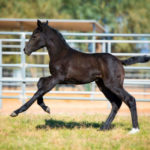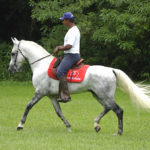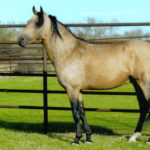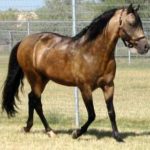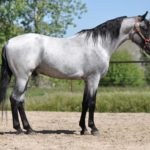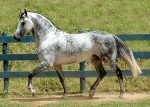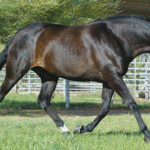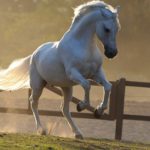Mangalarga Marchador Horse
The Mangalarga Marchador is an attractive and common Brazilian horse known for its unique gaits. It is the National Horse of Brazil. Other than general riding, they are extensively used in different other fields of sports like eventing or horse trial, endurance tests including cross-country, as well as working with cattle.
This smooth-gaited equine is characterized by two natural ambling gaits (also called ‘marcha’). One of these is moving the feet alternately in a lateral pace (called the ‘marcha picada’), while the other one involves moving in a diagonal pace (called the ‘marcha batida’).
Mangalarga Marchador Horse Pictures
- Mangalarga Marchador Horse Foal
- Mangalarga Marchador Horse Images
- Mangalarga Marchador Horse Mare
- Mangalarga Marchador Horse Pictures
- Mangalarga Marchador Horse Stallion
- Mangalarga Marchador Horse
- Mangalarga Marchador Horses
- Mangalarga Marchador
Quick Information
| Behavioral Characteristics | Docile, willing, noble, intelligent |
| Physical Traits | Have a straight profile with the head being triangular; the eyes are large and dark while the ears are erect with the tips turned inwards; the neck is muscular and arched, and the chest is deep and well-built; they have a medium back with straight, long, well-muscled legs |
| Coat Colors | Black, white, brown, bay, gray, chestnut, dun, buckskin, palomano, perlino, cremello, roan, champagne, and grullo |
| Height/Size | 14.2 – 16 hands (adult stallions and mares) |
| Weight | 975 pounds |
| Common Uses | Jumping, dressage, work, endurance, general riding |
| Health Problems | Healthy in general; no known breed-specific issues |
| Type | Cattle Horse, Riding Horse, Sports Horse, Transportation Horse |
| Ancestors (Bloodlines) | Barb Horse, Spanish Jennet |
| Children Riding | Yes |
| Popular Traits | Smooth-gaited, multi-talented, excellent in jumping, easily trainable, durable |
| Feeding/Diet | General horse diet including hay, grass, grains, etc. |
| Time of Development | 1740 |
| Country of Origin | Brazil (Iberian Peninsula) |
| Associations and Registries | Breed Standards and Breed Association |
Video: The smooth gaits of the Mangalarga Marchador

History and Development
In 1740 the first Mangalarga Horse was developed by Francisco Gabriel Junqueira, the Baron of Alfenas, crossing the Barb horse with the Spanish Jennet. Primarily Iberian in character, the Mangalarga is probably the purest offspring of the Jennet Horse, which is now extinct.
This horse developed during a time when traveling by horse was an important means of transport. The smooth gaits (inherited from its Spanish Jennet parent) and its persistent energy made them very much suitable for this job.
In 1949, the breeders formed an association so as to set specific standards and maintain control over its bloodline. Since then, more than 350,000 Mangalarga Marchadors have registered with the Association Mangalarga Marchador (ABCCMM). Outside of Brazil, Europe has the greatest population of these horses.


